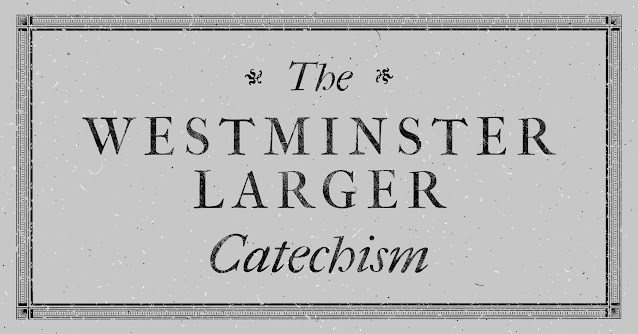By Pastor Benjamin Glaser - Posted at Thoughts from Parson Farms:
Knowing the One Who is Alone Sufficient and Complete
Good Morning!
While it may seem like we are re-inventing the wheel by going through the Larger Catechism after having spent a year in the Shorter Catechism I want to assure you of two things: first, it’s always good to go back over things we’ve heard before, second, I don’t think even I remember what I wrote in 2021, so it will be review for me as well. It is always a blessing to spend time learning about what the Bible teaches on who God is and why He is worth worshipping and serving, our salvation, grace, the commandments, prayer, the sacraments, etc… So I am positive that these studies on the Larger Catechism will be helpful and bring a positive light on your life as a believer, and just in general. Without further adieu here are the first two questions:
Q. 1. What is the chief and highest end of man?
A. Man’s chief and highest end is to glorify God, and fully to enjoy him for ever.
Q. 2. How does it appear that there is a God?
A. The very light of nature in man, and the works of God, declare plainly that there is a God; but His word and Spirit only do sufficiently and effectually reveal him unto men for their salvation.
The first thing you probably notice being a difference between the first question of the Shorter Catechism and the first question of the Larger Catechism is that the answer has more words in it.
A. The very light of nature in man, and the works of God, declare plainly that there is a God; but His word and Spirit only do sufficiently and effectually reveal him unto men for their salvation.
The first thing you probably notice being a difference between the first question of the Shorter Catechism and the first question of the Larger Catechism is that the answer has more words in it.
Deep thoughts there.
Yet, does that mean that it actually says more than the one we are more familiar with? Well, yes and no. It doesn’t change anything, but it does give us more to think about.
See also:
